Society for Cinema and Media Studies Annual Conference. March 22-26, 2016. Chicago, Illinois.
ABSTRACT: The career path of Gael García Bernal is inextricably linked to the alternative fortunes of Latin American cinema and questions of regional imaginary. In this paper I problematize the clichés attached to his fame by taking into account national, regional, and global sources in the light of transnational stardom theory. After the production crisis of the 1990s, Latin American cinema succeeded in regaining importance worldwide. Along with other scholars, Shaw and Shroeder addressed the revitalization of art cinema, the rebirth of film genres and identification techniques. However, even these insightful narratives marginalize the contribution of stars via performances, criticism and media promotion. While Bernal’s casting was pivotal for movies to receive international distribution and success at the box office, what do we make of his political commitment and his relationship with global cinematic industries? As a child star in Mexican telenovelas, Bernal masterfully explored issues of memory and identity by mobilizing affect and emotion. He later collaborated with the most talented directors of his generation (most notably Cuarón and Iñárritu) and played Che Guevara in The Motorcycle Diaries (2004) and in a television series. Bernal was identified as an “alternative” star, who prefers to take on complex roles in challenging movies, engaging audiences in voyages of self-discovery that combine humor, humanism, and historic travelogues. However, he also appeared in Nike Football: Write the Future, the Levi’s commercial French Dictionary, and in several Hollywood comedies. The cultural politics of Bernal’s stardom, in which idealism, rebellion and commerce coexist, brings to mind Godard’s formula “children of Marx and Coca Cola.” This contradiction emerges in the recent international productions Even the Rain (2010) and No (2012), in which Bernal questions his popularity in self-reflexive ways. In these films, his characters denounce social injustice but, by working within the moving image industry, are very much entangled in neoliberalist politics. Social engagement appears as advertisement, but advertisement is also a form of social engagement. The result is vertiginous, to the point that his whole stardom is based on this vital tension. Bernal is currently involved with alternative forms of digital production and distribution, such as the Amazon Studios series Mozart in the Jungle (2014 – ). He has expanded his fame by pushing the boundaries of filmmaking and his way of thinking about global politics not in terms of militancy, but as a dialogical exchange.
Selected Bibliographic Sources
Landy, Marcia. Cinema and Counter-history. Bloomington: Indiana, 2015.
Meeuf, Russell and Raphael, Raphael. Transnational Stardom: International Celebrity in Film and Popular Culture. New York: Palgrave Macmillan, 2013.
Shaw, Deborah. The Three Amigos: The transnational filmmaking of Guillermo del Toro, Alejandro González Iñárritu, and Alfonso Cuarón. Manchester: Manchester University Press, 2013.
Shroeder, Paul A. Latin American Cinema: A Comparative History. Oakland, University of California Press, 2016.
Soutar, Jethro. Gael García Bernal and the Latin America New Wave. London: Portico, 2008.
Filmography (in chronological order)
Amores Perros (Alejandro González Iñárritu, 2000)
Y Tu Mamá También (Alfonso Cuarón, 2001)
Fidel (Showtime, 2002)
French Dictionary (Ivan Zacharias, 2003; commercial)
The Crime of Father Amaro (Carlos Carrera, 2002)
Bad Education (Pedro Almodóvar, 2004)
The Motorcycle Diaries (Walter Salles, 2004)
The Science of Sleep (Michel Gondry, 2006)
The Past (Héctor Babenco, 2007)
Blindness (Fernando Meirelles, 2008)
Nike: Write the Future (Alejandro González Iñárritu, 2010; commercial)
Letters to Juliet (Gary Winick, 2010)
A Little Bit of Heaven (Nicole Kassell, 2011)
Casa de Mi Padre (Matt Piedmont, 2012)
Even the Rain (Icíar Bollaín, 2010)
No (Pablo Larraín, 2012)
Mozart in the Jungle (Amazon Studios, 2014 – )
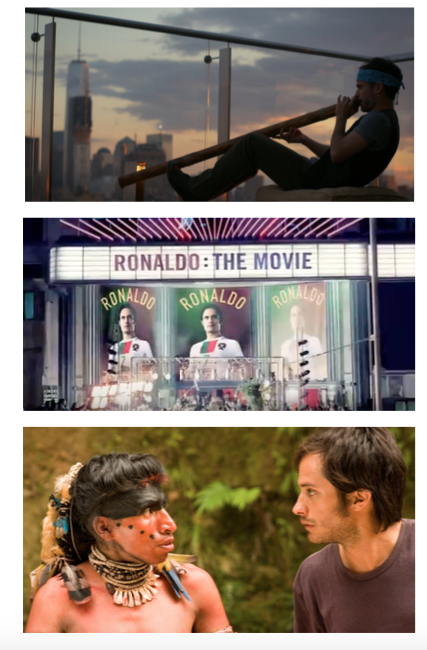
In and Out of the Jungle: The Politics of Gael García Bernal (SCMS 2016)
- Categories →
- Research
- Conferences
-
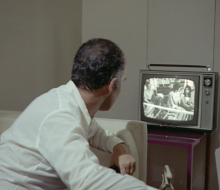
An Investigative Cinema (Book)

-
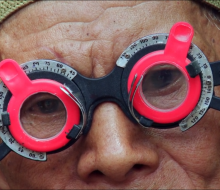
Joshua Oppenheimer’s Cold War Between Thought and Expression

-
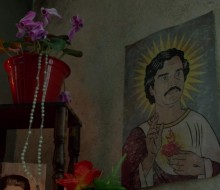
Too Strange to Believe: Magical Realism and Cold War Politics in Narcos

-

The Aesthetics of the Procedural in Post-9/11 Cinema (Cinema Journal)

-
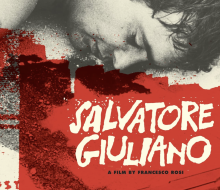
Shifting the Present: Francesco Rosi’s Salvatore Giuliano (Chronica Mundi)

-

In and Out of the Jungle: The Politics of Gael García Bernal (SCMS 2016)

-
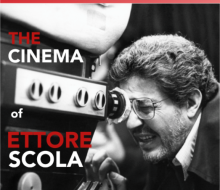
The Cinema of Ettore Scola (International Symposium at Casa Artom; Venice)

-
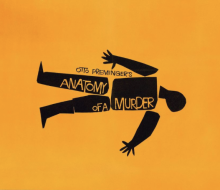
Just Imagine: Genre and the Logic of Movie Posters (Invited Talk)

-
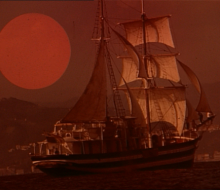
Evening Rituals: Marco Ferreri’s Dillinger is Dead (Intersections Conference; Florence)

-

Contemporary Science Fiction Cinema — Two Special Dossiers for Film Matters 8.3 & 9.1

-
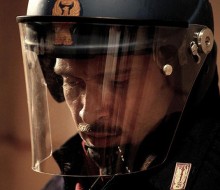
Network Narrative in Diaz. Don’t Clean Up This Blood (Harvard, ACLA 2016)

-
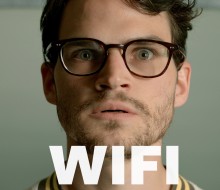
What Julian Smith Hates (and Loves) About Facebook: Social Media Parody as Self-Promotion (Comedy Studies)

-
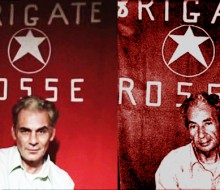
The Moro Affair in Gian Maria Volonté’s Movies (Book Chapter)

-
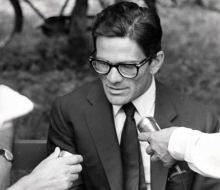
The Interview as Self-criticism: on Pasolini’s Metatelevisual and Extracinematographic Performativity (Book Chapter)

-
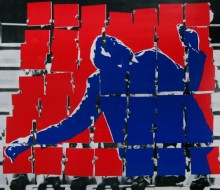
The Ontology of Replay: The Zapruder Video and American Conspiracy Films (Teorija in praksa)

-
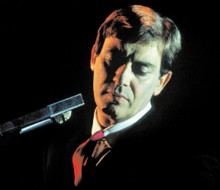
The Missed Encounter with the Actor-Poet: Carmelo Bene and Vittorio Bodini According to Ruggero Jacobbi (California Italian Studies)

-

One Hundred Steps & the Neorealist Heritage (Book Chapter)

-
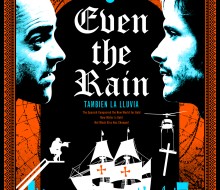
Even the Rain: A Confluence of Cinematic and Historical Temporalities (The Arizona Journal of Hispanic Cultural Studies)

-
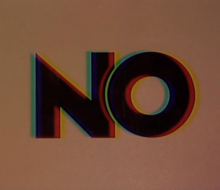
Pablo Larraín’s No and the Aesthetics of Television (Seismopolite)

-

Saviano, Garrone, Gomorrah: Neorealism and Noir in the Land of the Camorra (Fast Capitalism)

-

Conferences

-

Theater According to Ruggero Jacobbi

-
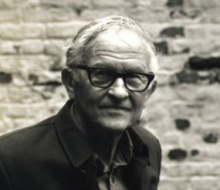
A Conversation with Albert Maysles

-
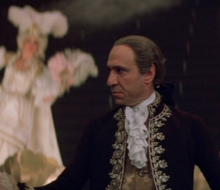
Rock me Amadeus: The Mozart-Salieri Conflict in Drama & Film

-

A Certain Absence in French Cinema

-

Cinemablography: Laughter as a Menacing Motif in Paul Thomas Anderson’s The Master

-

Cinemablography | A Legacy Intertwined: Christopher Nolan and his Dark Knight

-
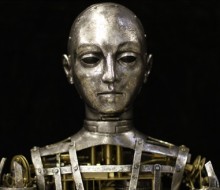
Cinemablography | Hugo: Nostalgia for the Origins of Cinema

-
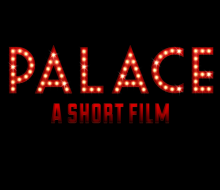
Palace, A Short Film

-

Dragoon Online

-

Pioneering YouTube

-
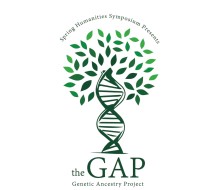
Genetic Ancestry Project

-
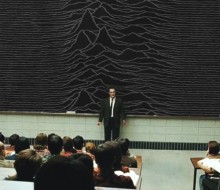
Teaching

-

Science Fiction Cinema

-

Short Story from Borges to HTML

-
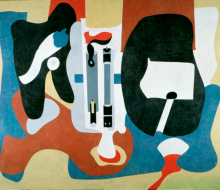
Eremo Zafer (Poetry)

-
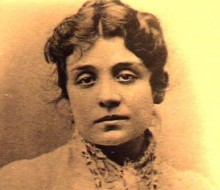
Adagio Domestico (Crocetti Editore)

-
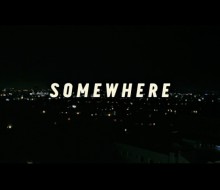
Somewhere Else (Poetry Book)

-
Clients

